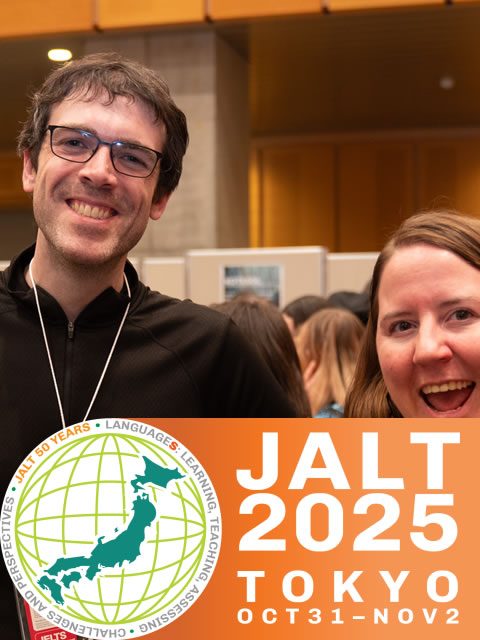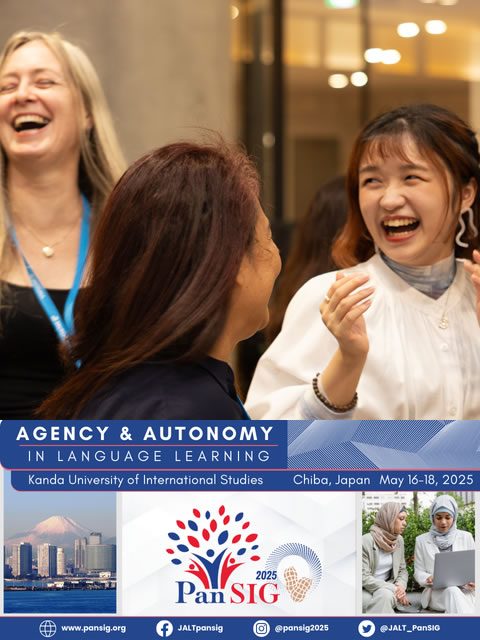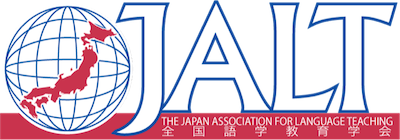Your cart is currently empty!
Plenary Speakers
•
Autonomy in Language Teaching and Learning: How to Do it “Here”
Phil Benson
The Hong Kong Institute of Education
Co-sponsored by Learning Development SIG
Global interest in autonomy in language teaching and learning is growing year by year. At the same time, many teachers believe that autonomy may work “elsewhere”, but that it will never work “here”–the place in which they live and work. In this presentation, I will argue that there is, in fact, no ideal “elsewhere” for autonomy. After revisiting the meanings of learner autonomy and teacher autonomy–and what may be considered as universal within them–I will argue that fostering autonomy is essentially a matter of critical engagement with situated constraints on learner control over learning. I will conclude by outlining a framework that teachers can use to evaluate constraints on autonomy in their workplaces and by suggesting a number of techniques that they can use to work within and around these constraints.
Phil Benson is a Professor in the English Department at the Hong Kong Institute of Education, where he teaches on the Department’s Ed.D and MATESOL programmes. He is also director of the Faculty of Languages Centre for Popular Culture and Education. He has published widely on the subject of autonomy, including the book Teaching and researching autonomy (Pearson, Second Edition, 2001). His current research projects include a collaborative project on Second Language Identities and Study Abroad with partners in Australia and New Zealand.
Acts of Identity: Typical and New English Learners
Laurel Kamada
Tohoku University
Co-sponsored by Bilingualism SIG
This plenary explores the notion of “English as an ideology” in Japan rather than just as a means of communication or a school subject, where local English usagefunctions as a cultural symbol of globalization. Emerging ways of looking at English learning/usage in Japan as “acts of identity” highlight the changing role of English here. I examine this “glocal” construction and de-construction of English, not only from that of “typical” Japanese learners/users of English, but also from a new growing sector of “untypical” Japanese nationals from families of (Japanese and non-Japanese) mixed-parentage who stake claim to diverse ethnicities. How do “typical” Japanese children construct and celebrate their linguistic and ethnic identities similarly to or different from that of this new “hybrid” sector of mixed-ethnic “Japanese” youths? What ideologies/stereotypes do Japanese children take to elementary school with them and what is the impact of early English on learners’ “acts of Englishing”?
Laurel Kamada has been residing/researching/working in Japan for the latter half of her life. She has published numerous academic works and presented papers widely at international and local conferences on Japan topics such as: bilingualism and multiculturalism; English education; gender and ethnic studies; masculinity; and “glocal” identities. She serves on the editorial board of Japan Journal of Multilingualism and Multiculturalism and the Gender Awareness in Language Education Journal. She is on the advisory council of the International Gender and Language Association. Her most recent book is: Hybrid Identities and Adolescent Girls: Being “half” in Japan (Multilingual Matters, 2010).
Competence and Performance in Language Teaching
Jack C. Richards
Regional Language Centre, Singapore; University of Sydney
Co-Sponsored by Cambridge University Press and Oxford University Press
In order to plan for the professional development of English language teachers, we need to have a comprehensive understanding of what competence and expertise in language teaching consists of. What essential skills, knowledge, values, attitudes and goals do language teachers need, and how can these be acquired? This paper seeks to explore these questions by examining ten core dimensions of skill and expertise in language teaching. These are: language proficiency, content knowledge, teaching skills, contextual knowledge, language teacher identity, learner-focussed teaching, specialized cognitive skills, theorizing from practice, joining a community of practice, and professionalism. Each construct will be examined, relevant research summarized, its contribution to teacher competence and performance illustrated, and implications discussed for the development of English language teachers and teacher education programs.
Jack Richards is an internationally renowned applied linguist, teacher educator, and textbook author, a specialist in the teaching of English as a second language (TESOL) who has had an active career in the Asia Pacific region (Singapore, Hong Kong, Indonesia, Hawaii) for many years. He has written many books and articles on language teaching methodology and teacher training, as well as many widely used classroom texts including the best selling series Interchange (Cambridge), which has sold over 30 million copies world-wide. His most recent publications are Cambridge Guide to Second Language Teacher Education (edited with Anne Burns, Cambridge 2009), Longman Dictionary of Applied Linguistics 4th edition (with Richard Schmidt, Pearson 2010), and Teaching Practice: a Reflective Approach with Tom Farrell (Cambridge 2011). Forthcoming publication include Cambridge Guide to Pedagogy and Practice in Language Teaching (edited with Anne Burns) and a new 4 skills series Four Corners (with David Bohlke, Cambridge 2011).
Motivating the Unmotivated–Do Teachers Have to Do ALL the Work?
Ken Wilson
Author, Teacher and Teacher Trainer
Sponsored by Oxford University Press
Twenty-first century ELT materials are bursting with good content and ideas, yet there are times when some of our students just don’t want to know. The usual suspect reason–it’s the end of a long, hard week, they may not be “in the right mood”–can’t explain this torpor in every case. There may be other stress-inducing factors in their life or in other areas of their education. So what can we do about it? Research suggests that teacher enthusiasm is the most important factor in student motivation. But teachers have to motivate themselves, too. Does this mean we have to lift the students as well to make lessons effective?
In this talk, I will suggest ways you can motivate your students by challenging them, making them curious, and giving them more responsibility for what goes on in the classroom; also by encouraging them to be imaginative, exploiting their talents and keying into their specialist knowledge about anything–Olympic champions, the solar system or even the names of insects. It’s all there, waiting to be released. And the good news is the enthusiasm they show will wash back and renew YOUR enjoyment of what you do.
Ken Wilson is an author and trainer. He has written more than thirty ELT titles, including a dozen series of course books, including Smart Choice for Oxford University Press. He also writes lots of supplementary material, and in 2008, OUP published Drama and Improvisation, a collection of more than 60 of his ELT drama and motivational activities. In addition to writing and recording more than 150 ELT songs, he has also written more than a hundred ELT radio and television programs for the BBC and other broadcasters, including fifty radio scripts for the Follow Me series, thirty Look Ahead TV scripts and a series of plays called Drama First. Until 2002, Ken was artistic director of the English Teaching Theatre, a touring company which performed stage-shows for learners of English in more than 55 countries, including three tours to Japan.
JALT Junior Plenary
Communication, Confidence and Achievement: Bridging the Gap Between Elementary and Junior High School English Language Learning
Emiko Yukawa
Ritsumeikan University
Teacher and Teacher Trainer
From this year, foreign language, in most cases English, instruction has been made compulsory for 5th and 6th graders once a week with the aim of building up the foundation of communication abilities. A debatable point for many asks if instruction at this age level is meaningful; (i.e., will it lead to higher English proficiency later at the secondary school?) Also in question is “the foundation of communicative competence,” which is supposedly the goal of elementary school English. Still others include: What is the relationship between nurturing positive attitudes toward English learning and building up basic English communication skills? How can such primitive English be assessed in non-threatening and formative manners? How does the result differ depending on the pedagogical technique? The purpose of this talk is to explore these points and to share how the findings from a recent project show what students can achieve through elementary school English education and what this will mean for Junior High School teachers.
Emiko Yukawa is a professor at Ritsumeikan University, College of Letters, where her main responsibility is to train future secondary school English teachers. Her research interests include English education at primary/secondary schools, bilingual education, and language attrition. Recently she has been supporting a number of elementary schools on a regular/irregular basis and their linked junior high school teachers as well, offering in-service teacher training and collecting data to evaluate their teaching practice. The results are published as Communicative competence expected to be learned in elementary English education (2009, in Japanese) and in various journal articles.

JALT2025 International Conference
2025年10月31日(金)〜2025年11月02日(日) 東京都渋谷 国立オリンピック記念青少年総合センター Friday, October 31 – Sunday, November 02, 2025 • National Olympics Youth Memorial Center, Tokyo, Japan

PanSIG Conference
PanSIG 2025 will be held May 16-18 in Chiba. PanSIG is an annual conference organized by JALT’s Special Interest Groups (SIGs).
